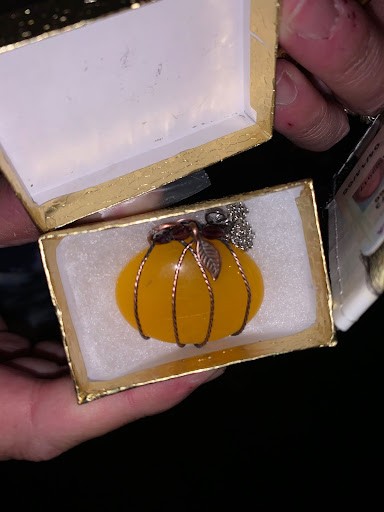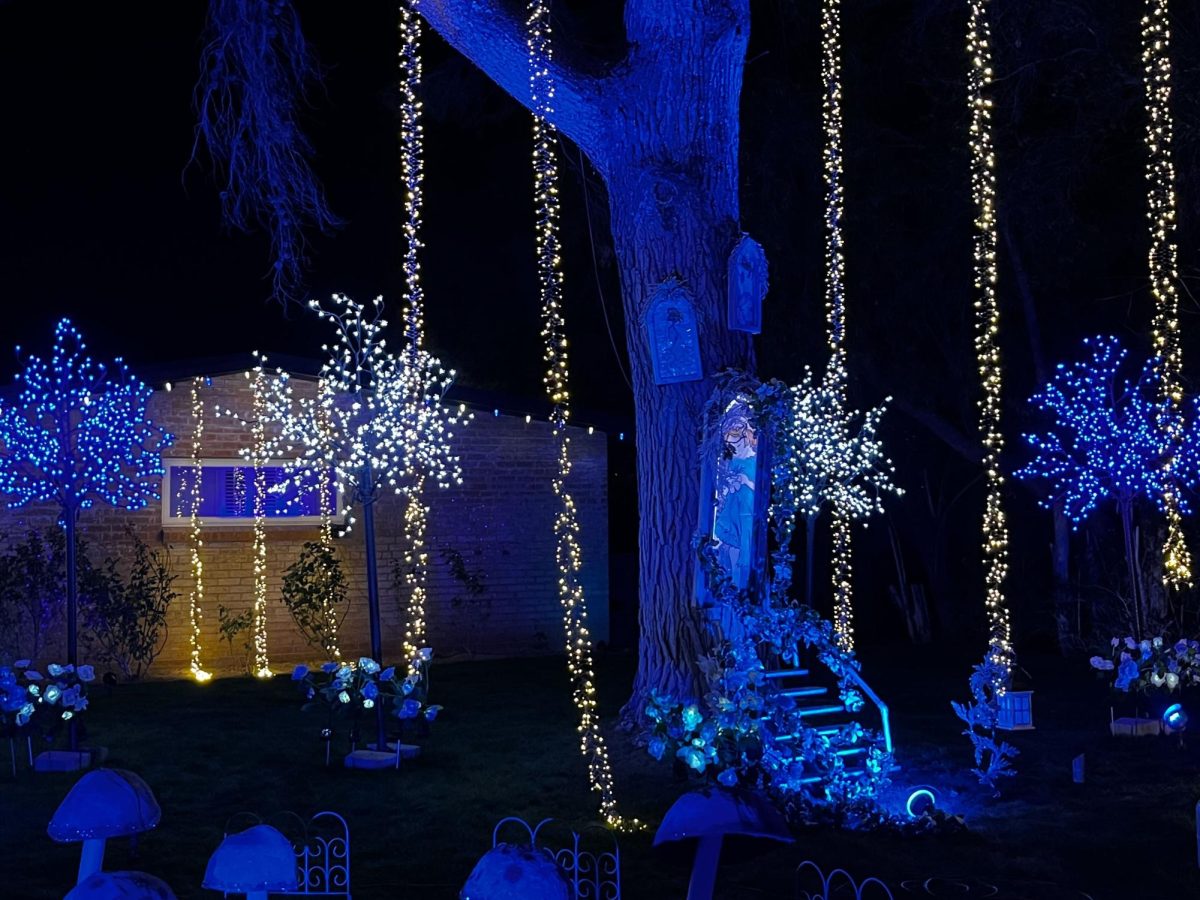The term “jubilee” derives from the Hebrew word yobel which translates to “ram’s horn.” Biblically this references the horn that trumpeted the sound indicating to everybody the beginning of a year of liberation, the jubilee year.
The band Japanese Breakfast performed their third and newest album “Jubilee” at Club Congress on Nov. 3. The title of the album is only fitting, as, after a significant period of personal tragedy with the death of lead singer Michelle Zauner’s mother, she demonstrates musically that she is ready to fight for her happiness.
Ironically, the concert began with a darker tone. Opener SASAMI entered the stage cloaked in black, hoods obscuring her and her band’s faces. The sharp rise of a violin orchestrated their arrival, encompassing an eerie impression. Once the cloaks were shed, the audience was met with a traditional metal band: men whipping their long hair and donning kilts, guitars shaped like axes and lots of screaming.
RELATED: Concert Review: Perfume Genius shimmers and shines at Club Congress

SASAMI herself obscured her eyes with a bucket hat for the majority of the performance. When revealed, once comforting, familiar human eyes had now transformed into a disorienting visual. They were as illuminating as they were creepy, creating an effect that made her seem omnipotent.
Despite a heavy rock performance, SASAMI was having fun. After every ear-piercing song, SASAMI would crack a quip or two. She even jokingly gave the Tucson audience a name, “Mordecai.”
This was likely not what concertgoers were expecting as an opener, but in hindsight, it fit. Both musicians parallel one another in how they deal with pain, as while SASAMI manages to find the light in her darkness, Japanese Breakfast bids farewell to their shadow in search of joy.
Once Japanese Breakfast came on stage, the venue was submerged in an array of colors. Accompanied with traditional stage lights, the band also brought their own colorful light disks displayed on the stage’s back wall. Thus not only could you hear the music, but you could also see it.
Zauner is Korean-American, and much of the night showed influences of her Asian-American upbringing. With much of her merch displaying Asian influences, as well as her music itself, Zauner accompanied most of her performance with a gong. While the audience would be rattled by each gong hit, Zauner showed no surprise and would blissfully dance around the stage, enjoying her jubilee.
Concertgoer Kat Edwards had seen Japanese Breakfast previously, so she has long been familiar with the band’s music. She saw Zauner at her darkest and now is here to see her at a new beginning.
“She’s an amazing lyricist and writer. [In Jubilee] the color yellow is so prevalent and definitely represents hope and a new day,” Edwards said.
Edwards makes her own jewelry using gemstones. As a gift to Zauner, Edwards designed a piece to match the album’s theme.
“[The stone] is sort of a dark yellow onyx, and I thought the garnet would accent it well,” Edwards explained. “ I wanted to give her something that was yellow in color and went with the theme of ‘Jubilee.’”

Amanda Saucedo, a freshman at the University of Arizona studying Psychology, agreed with Edwards that “Jubilee” was a joyful album.
“It felt so good to listen to when everything felt like sh*t,” Saucedo joked.
In addition to being a singer and songwriter, Zauner is an author, with her memoir “Crying in H Mart” achieving critical acclaim and success. The book is an expansion of her New Yorker essay with the same name, delving into the grief she experienced with her mother’s cancer and the after-effects of her death.
“It’s so good,” Saucedo beamed. “It’s so well worded and just so personal and raw, and I feel so connected to Michelle now.”
Besides clothing items, Japanese Breakfast also had signed copies of the memoir up for sale at the concert.
Though most of the songs like “Paprika” and “Be Sweet” were focused on Zauner’s hopeful future, “In Hell” showed that she continues to feel the absence of her mother and will never forget her. Overall the concert and the album itself demonstrated how grief can be never-ending, but that it is not a reason to stop fighting for the joy in life.
Follow Allison Fagan on Twitter















